Why Recognizing the Need for Rehab is Crucial
Identifying the need for rehabilitation services can be a daunting task, especially when you're unsure of the signs and symptoms that indicate substance use disorders. With the prevalence of substance use issues, it becomes essential to understand when professional help is necessary. This article explores the symptoms of addiction, self-assessment tools, and the benefits of seeking rehab to ensure a path towards recovery.
Self-Assessment Tools for Substance Use Concerns
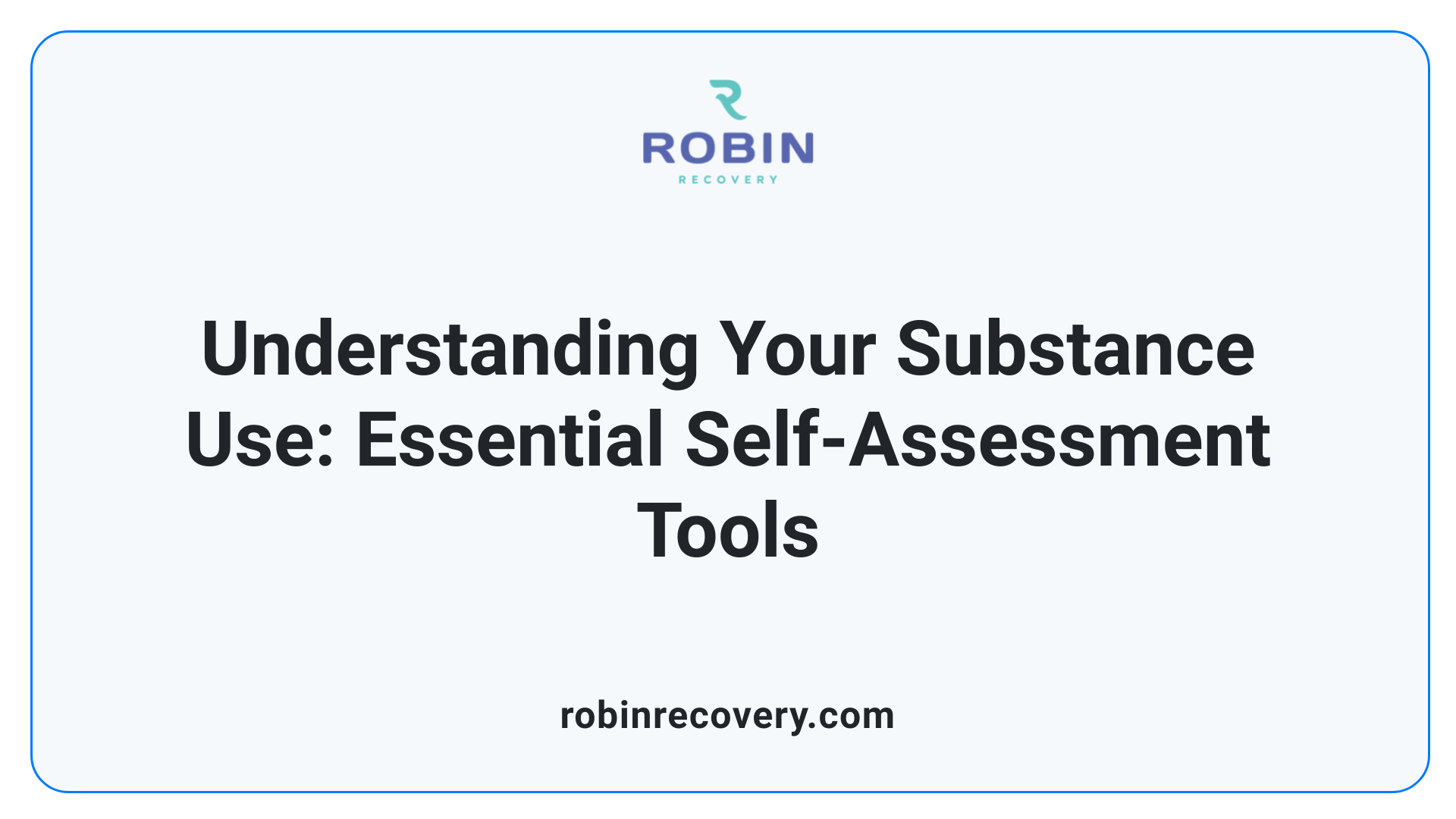
The Importance of Self-Assessment
Determining whether you or a loved one may need rehabilitation is a critical step in addressing substance use issues. Self-assessment plays a pivotal role in this process, allowing individuals to reflect on their habits and the consequences of their substance usage. It is essential to approach this evaluation honestly, as recognition of potential addiction is the first step toward seeking help.
Available Quizzes for Assessing Addiction
Several self-assessment quizzes can help gauge the severity of substance use. These quizzes typically include questions related to:
Encouraging Honesty in Self-Evaluation
Self-evaluation requires honesty and introspection. Admitting to potential substance misuse can be challenging, but it's a crucial step in recovery. It's important for individuals to trust their instincts and listen to concerns raised by friends and family members. Recognizing the need for help is fundamental and can pave the way to effective treatment options, such as those offered by rehab facilities.
Recognizing the Signs of Substance Use Disorders
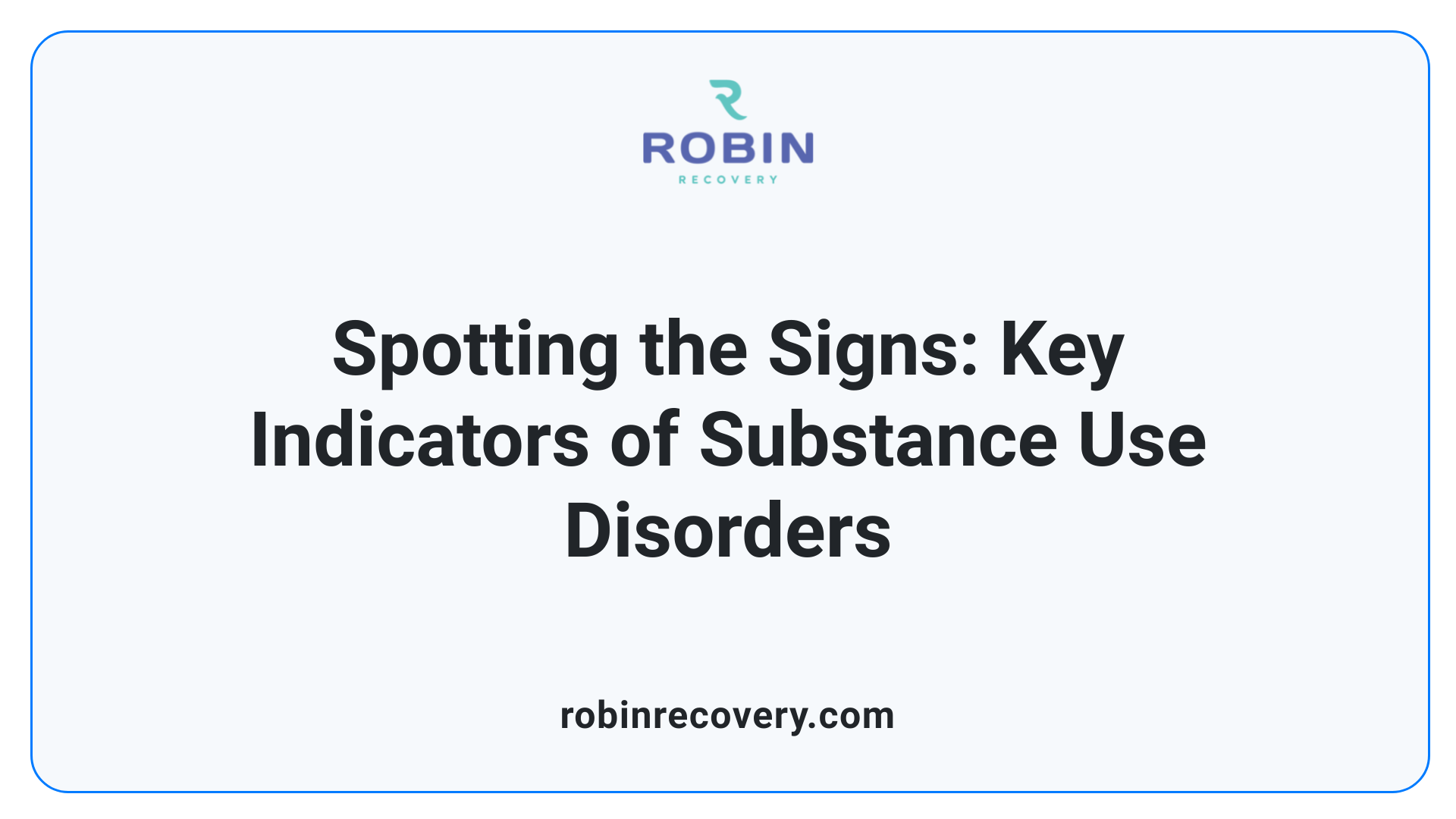
What are the signs indicating the need for rehabilitation services?
Signs indicative of a potential need for rehabilitation services can manifest in various physical, mental, and social ways. Commonly, they include:
The severity of substance use disorder ranges from mild to severe, and it can be essential to seek a personalized treatment plan tailored to the individual's specific needs.
Early intervention and acknowledging the problem
Recognizing these signs early can facilitate access to effective treatment options. Many individuals struggle to admit they have a problem, often waiting until hardships escalate. Notably, involving friends and family can provide the perspective needed to prompt someone to seek assistance.
DSM-5 criteria for substance use disorders
The DSM-5 classification outlines 11 criteria that help determine the severity of a substance use disorder. Meeting at least two criteria could suggest a mild disorder, while six or more indicate serious addiction requiring professional intervention. Some criteria include:
Understanding the Effects of Substance Use
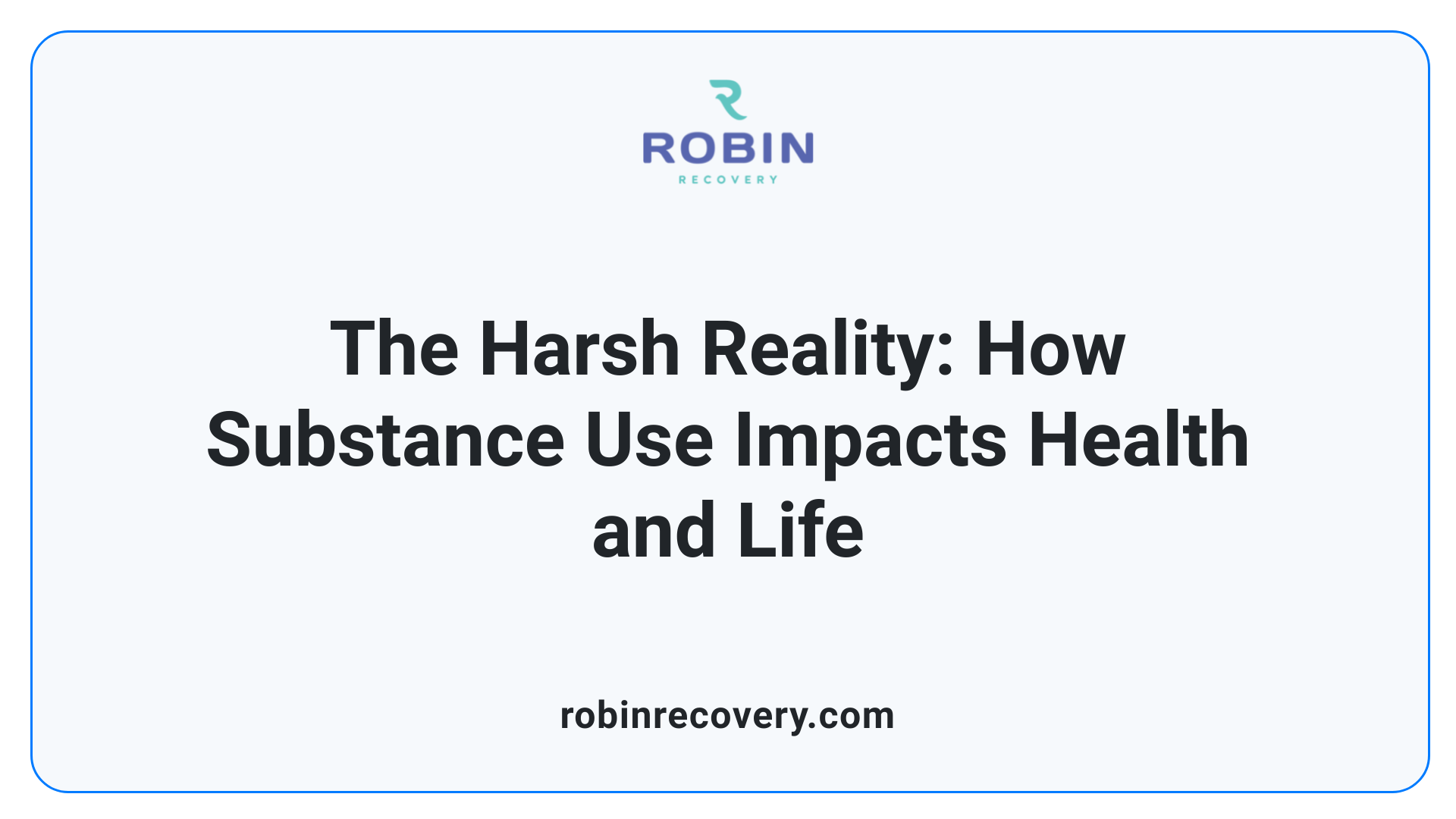
Physical and Mental Health Risks Associated with Substance Use
Substance use can lead to severe health complications, both physical and mental. Regular use can precipitate cardiovascular diseases, liver problems, and respiratory issues. Moreover, it can exacerbate mental health disorders, triggering increased anxiety, depression, and cognitive impairments. Symptoms may include withdrawal effects like shaking, nausea, or insomnia, which indicate physical dependency, reinforcing the need for professional treatment.
Impacts on Personal and Professional Life
Substance abuse can lead to significant disruptions in personal and professional spheres. Individuals may neglect responsibilities at work or home, leading to job loss or declining academic performance. Social interactions often suffer, with relationships strained due to behavioral changes associated with addiction. Legal issues can arise, demonstrated through reckless behaviors such as driving under the influence, further complicating an individual’s life.
The Progression of Addiction Over Time
Addiction is progressive, often worsening without intervention. Signs of this progression include developing a greater tolerance, where more of the substance is needed to achieve the same effects. Repeated unsuccessful attempts to quit only highlight the severity of the addiction. Ultimately, individuals may become preoccupied with obtaining and using substances, indicating a dire need for rehabilitation to regain control.
Types of Rehabilitation Services Available
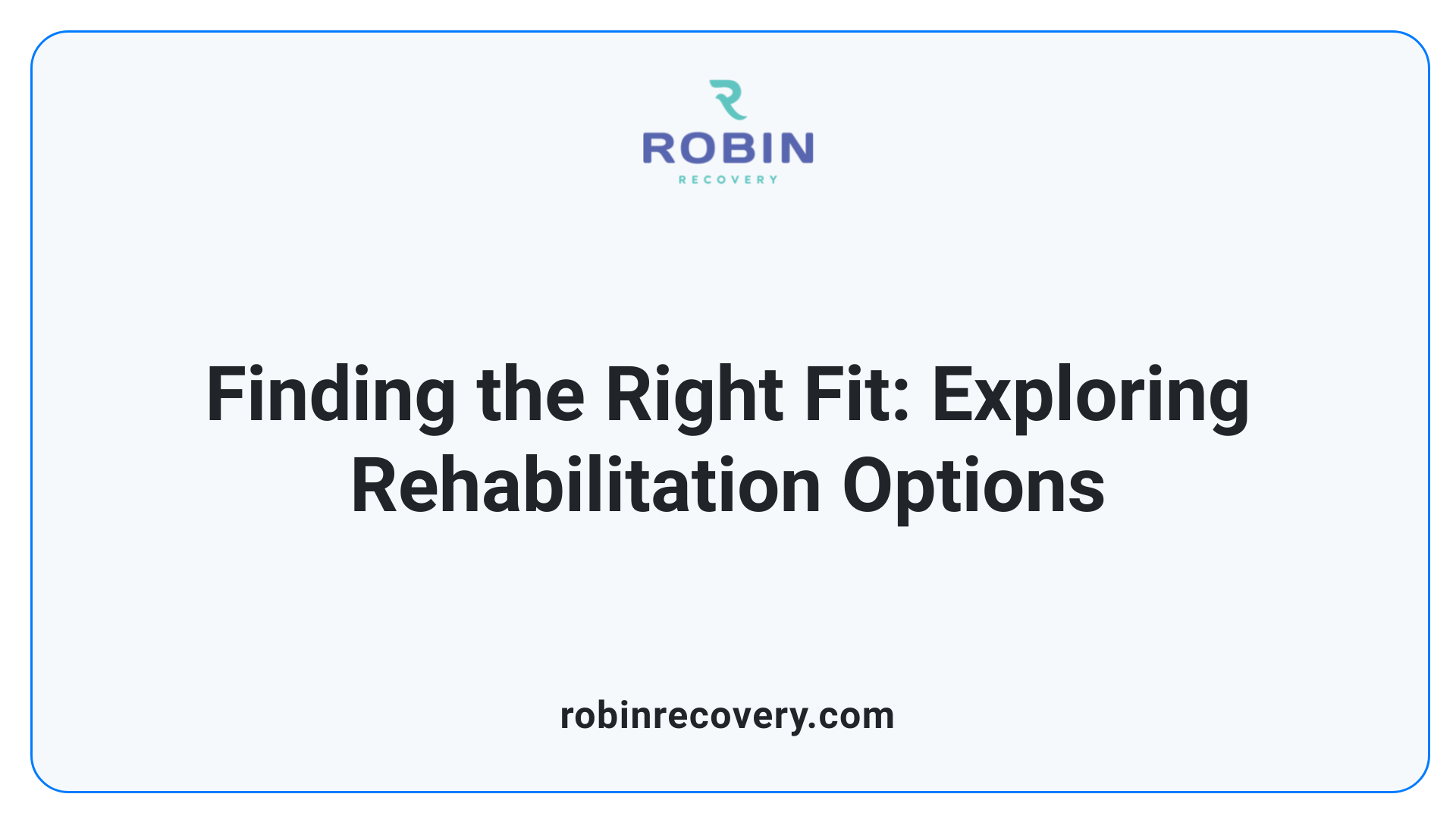
Inpatient vs. Outpatient Treatment Options
Rehabilitation services come in two primary forms: inpatient and outpatient treatment.
The Benefits of Professional Rehabilitation Services
Professional rehab services offer numerous advantages:
Tailored Treatment and Support Networks
Treatment approaches should be individualized, as every person has unique needs:
Treatment TypeDescriptionBenefitsPersonal CounselingOne-on-one therapy sessionsAddresses individual challenges in addictionGroup TherapyShared experiences in a group settingOffers support from peers who understand recovery strugglesAftercare ProgramsContinuous support post-rehabHelps maintain sobriety and encourages accountability
Tailored programs ensure that individuals receive the right combination of treatments and support networks to maximize their chances of recovery.
The Importance of Professional Help During Recovery
The Role of Medical and Psychological Support
Professional help is vital during recovery from addiction, as it combines medical care and psychological support tailored to the individual’s needs. Treatment options include inpatient and outpatient rehab programs, which address both physical dependence and underlying mental health issues. Therapy sessions can help clients develop coping skills, making it easier to resist cravings and overcome triggers.
Detoxification and the Dangers of Detoxing Alone
Detoxification, often the first step in addiction recovery, can be exceedingly challenging. For many substances, such as alcohol or benzodiazepines, withdrawal can lead to severe complications and even life-threatening symptoms. Attempting to detox alone increases the risk of relapse and inadequate management of withdrawal symptoms. Professional rehab facilities provide structured detox programs that offer medical supervision, ensuring safety and comfort during this crucial phase.
Support Systems in Rehab
Rehab programs also emphasize building a solid support system that includes counselors, peers in recovery, and family involvement. Support groups, behavioral therapies, and a nurturing environment foster a sense of community and accountability, which can significantly enhance recovery outcomes. Access to these resources empowers individuals as they work toward lasting sobriety.
Aspect of RecoveryImportanceBenefitsMedical SupportProvides safety during withdrawalReduces complications, promotes recoveryPsychological SupportAddresses underlying issuesFacilitates coping strategies, prevents relapseCommunity SupportEncourages accountability and connectionBuilds a network for shared experiences and hope
Exploring Alternatives to Rehab
Is it possible to get sober without rehab?
Yes, it’s possible to get sober without rehab, but it can be quite challenging, especially for those with long-term dependence. Statistics show that only about 10% of Americans with substance use disorder receive treatment, which highlights the need for alternative methods. Acknowledging the problem and being self-aware is a crucial first step in the recovery journey.
Strategies for independent recovery
To increase the chances of success while pursuing sobriety independently, consider the following strategies:
Building a support network outside of rehab
Building a support system of friends and family can significantly aid in maintaining sobriety. Engage loved ones who understand your journey and can provide encouragement. Additionally, look for local support groups or online communities focusing on recovery. Connecting with individuals who share similar experiences can provide valuable insights and emotional support throughout your journey to sobriety.
When to Make the Decision to Seek Rehab
Signs that indicate rehab is necessary
Recognizing when it's time to seek rehab can be complex. However, several clear signs can help identify the need for professional assistance. Key indicators include:
How to approach the decision of entering rehab
Making the decision to enter rehab should be approached with honesty and self-reflection. Individuals must recognize the impact of substance use on their lives and relationships. Consider the following:
Using resources like SAMHSA’s National Helpline for support
SAMHSA’s National Helpline is a valuable resource for anyone unsure about their need for rehab. Here’s how to utilize it:
Overall, understanding the signs of addiction and reviewing available resources are vital steps in deciding to seek rehabilitation. Reaching this decision could pave the way for recovery, ultimately leading to a healthier future.
Supporting Loved Ones in Recognizing the Need for Rehab
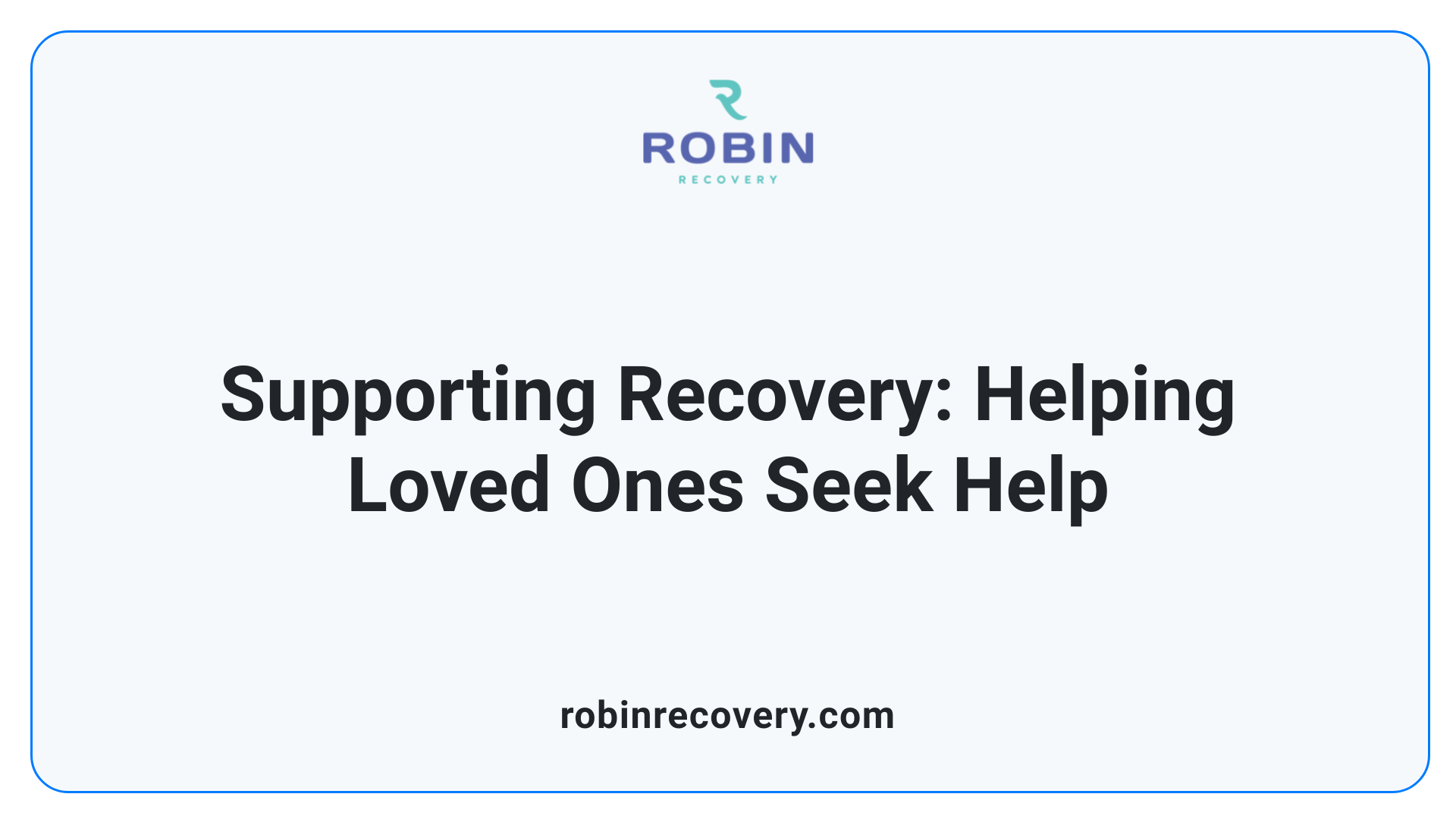
How to approach someone with a substance use issue
Approaching a loved one about their substance use can be challenging. Start with empathy and focus on expressing your concerns without judgment. Use ‘I’ statements, such as "I am worried about you," to make them feel safer in the conversation. Listening actively is crucial; allow them to share their feelings and struggles. Choose a calm, private time to talk, ensuring the environment feels supportive and non-confrontational.
Importance of family and friends in the recovery process
Family and friends play a vital role in recovery from addiction. Their support can provide emotional stability and help the individual feel less isolated in their struggle. Encouraging open communication and being present for your loved one can immensely boost their motivation to seek help. When family and friends express concern and understanding, it often helps individuals realize the gravity of their situation, prompting them to consider rehab.
Resources available to support loved ones
SAMHSA’s National Helpline is a valuable resource for individuals seeking guidance on how to help loved ones with substance issues. You can reach out at 1-800-662-HELP (4357) for confidential support, and they provide referrals to local treatment facilities. Additionally, support groups such as Al-Anon help families of alcoholics, offering a safe space to share experiences and gain understanding.
Here’s a quick reference table summarizing resources:
Resource TypeName/ServiceContact InformationNational HelplineSAMHSA National Helpline1-800-662-HELP (4357)Family Support GroupsAl-Anonwww.al-anon.orgText SupportHelp near youText your zip code to 435748 (HELP4U)
Taking the Necessary Steps to Recovery
Recognizing the need for rehabilitation services is a critical step in the journey towards overcoming substance use disorders. Whether considering professional treatment or exploring alternative recovery methods, it is vital to be informed about the signs of addiction and the resources available. Acknowledging the problem and reaching out for support can pave the way for a healthier, sober lifestyle. Remember, recovery is possible, and seeking help is a sign of strength.
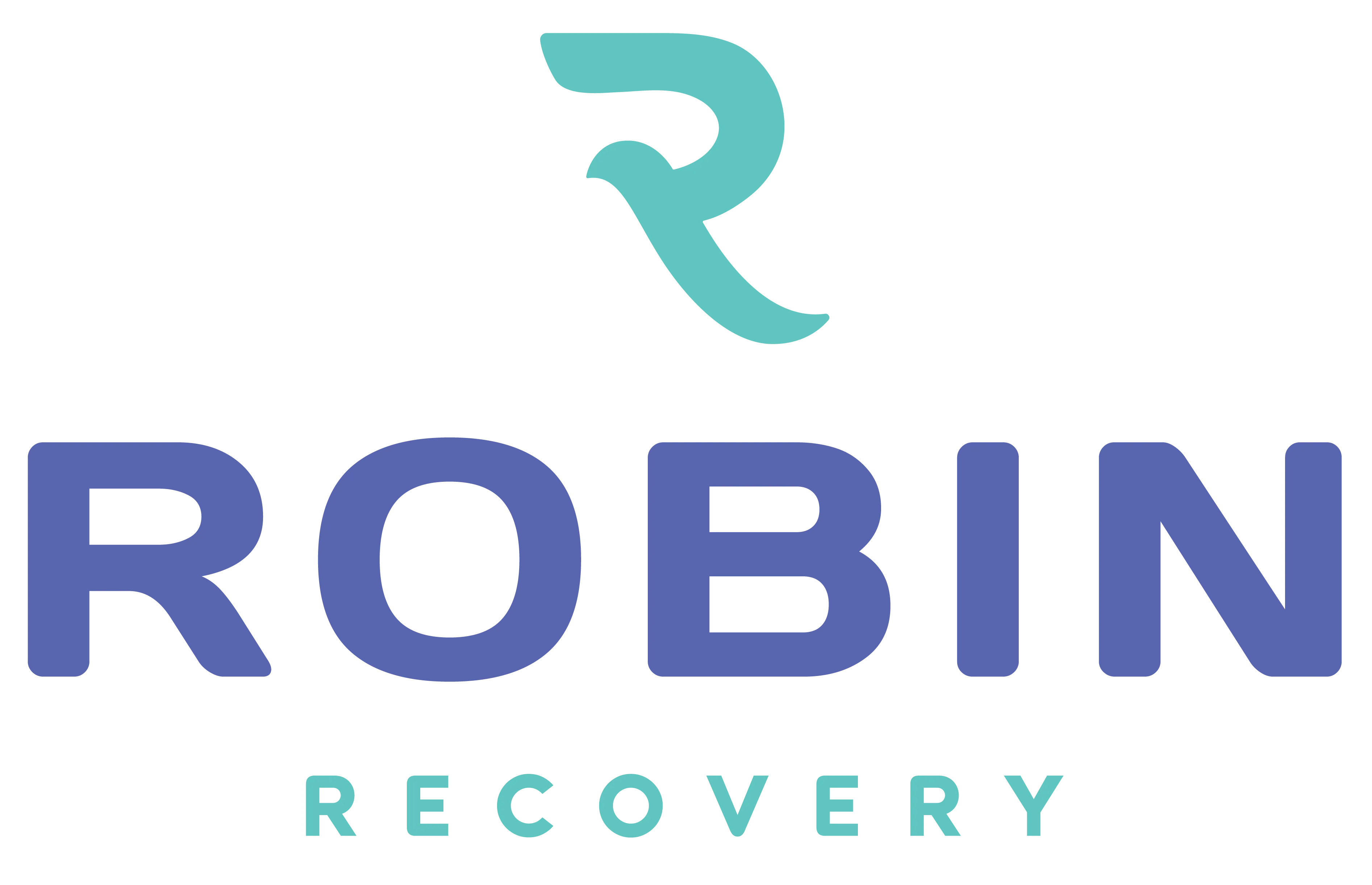
.svg)

.svg)

.svg)
.svg)




































































































